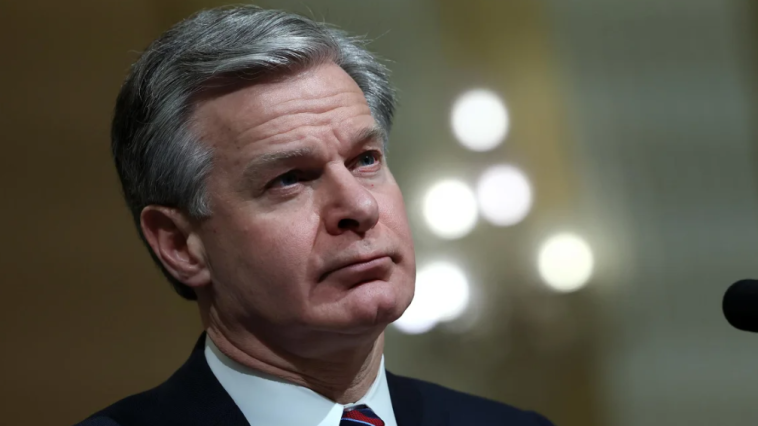FBI Director Christopher Wray has announced his intention to resign ahead of President-elect Donald Trump’s inauguration in January 2025. This decision comes after mounting pressure from Republican lawmakers who have repeatedly criticized Wray’s handling of high-profile investigations, as well as Trump’s nomination of Kash Patel to replace him as director.
A Controversial Tenure
Wray, appointed by Trump in 2017 following the dismissal of James Comey, has faced a tumultuous tenure marked by criticism from both sides of the political aisle. Republican lawmakers have accused him of bias and inadequate oversight in politically sensitive cases, including investigations involving classified documents tied to Trump and President Joe Biden. Additionally, GOP leaders have expressed frustration over the FBI’s handling of issues like alleged election interference and probes into social media companies’ moderation practices.
Senator Chuck Grassley, one of Wray’s most vocal critics, recently expressed a lack of confidence in his leadership, calling for both Wray and Deputy FBI Director Paul Abbate to step down. Grassley cited what he described as “a failure to restore trust and impartiality” within the bureau under Wray’s leadership.
The Appointment of Kash Patel
Trump’s decision to nominate Kash Patel as Wray’s replacement has intensified scrutiny of the FBI’s future direction. Patel, a former Trump aide and Justice Department official, is known for his sharp criticism of what he calls the “Deep State” and has advocated for major reforms within the agency. He played a key role in Trump’s efforts to challenge the findings of the Russia investigation and is considered a staunch loyalist.
If confirmed, Patel would be the first Indian American and the youngest person to serve as FBI Director. His nomination has been met with mixed reactions, with some Republican lawmakers praising his vision for accountability and transparency within the agency, while others question whether his close ties to Trump could compromise the bureau’s independence.
Wray’s Legacy and Resignation Timeline
Wray’s resignation, expected to take effect in January, marks the end of a controversial chapter for the FBI. While his defenders argue that he worked to stabilize the bureau after Comey’s dismissal and to maintain professionalism amid political turbulence, critics contend that he failed to adequately address perceived partisan influences within the agency.
Wray’s departure aligns with the incoming administration’s desire to implement sweeping changes in federal law enforcement leadership. Trump has made it clear that he intends to reshape the FBI’s priorities, with an emphasis on curbing internal leaks, reducing its footprint, and addressing what his allies see as a politicized culture within the bureau.
What’s Next for the FBI?
The Senate will hold confirmation hearings for Patel, where his qualifications and plans for the FBI will face rigorous scrutiny. Key questions are likely to focus on his ability to lead the bureau impartially while enacting reforms consistent with Trump’s vision. Democratic lawmakers have already signaled concerns about Patel’s political ties, suggesting that his confirmation process could be contentious.
As the transition unfolds, the FBI faces a pivotal moment in its history. The agency’s ability to navigate these changes while maintaining its core mission of protecting national security and enforcing federal laws will be closely watched. Wray’s resignation and Patel’s potential appointment signal a significant shift in leadership and priorities that could redefine the bureau’s role in the coming years.
Broader Implications
The shake-up at the FBI comes amid broader debates over the role of federal law enforcement in a politically charged environment. Wray’s decision to step down, coupled with Trump’s nomination of Patel, highlights the ongoing struggle to balance the agency’s independence with calls for greater accountability and reform. As these developments unfold, the future of the FBI remains a focal point for both lawmakers and the public.


